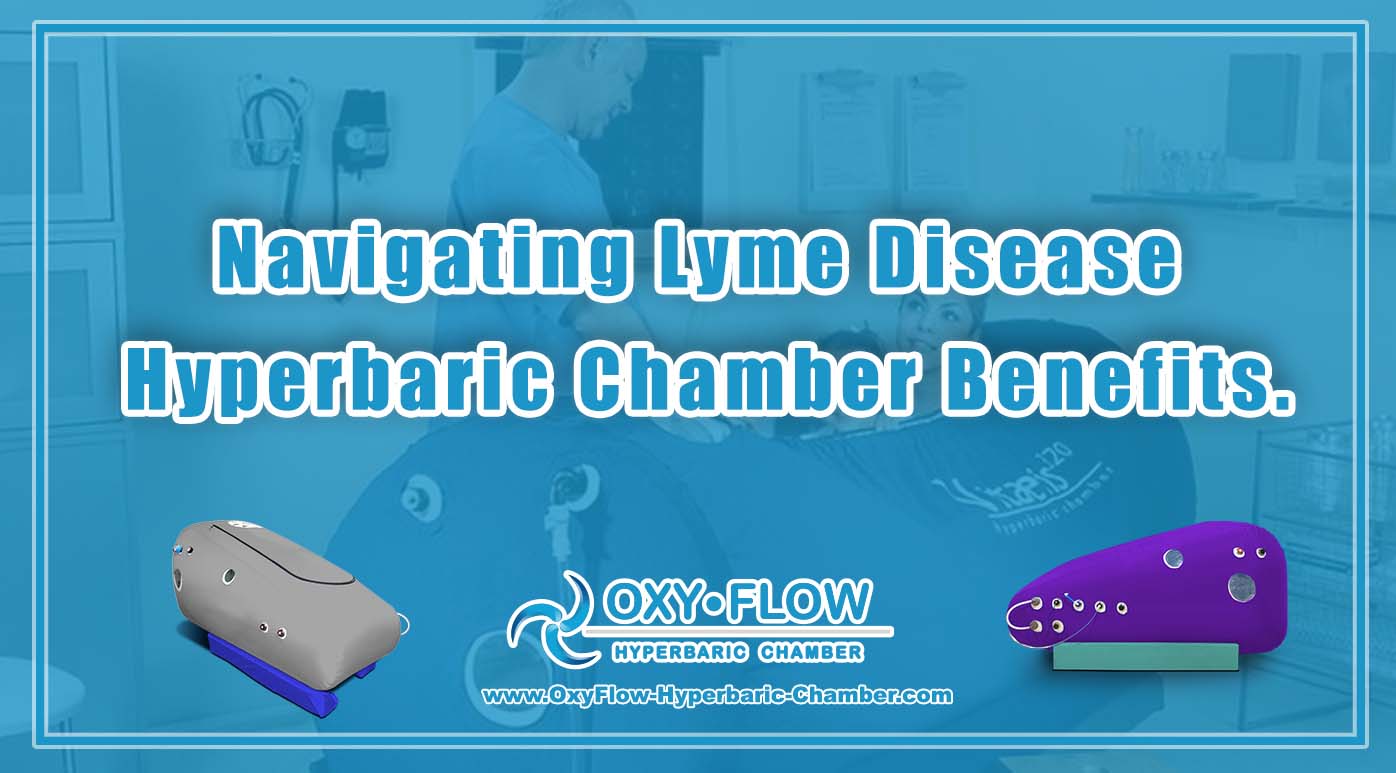© 2024 OxyRevive copyright all right reserved.
Menu
Navigating Lyme Disease | Hyperbaric Chamber Benefits.
Navigating Lyme Disease | Hyperbaric Chamber Benefits.

Navigating Lyme Disease Living with Lyme disease can be challenging and debilitating for many individuals. The symptoms of Lyme disease can range from mild to severe and may impact various aspects of a person’s life. From chronic fatigue to joint pain, the effects of this condition can be overwhelming. One such alternative treatment that has gained attention in recent years is hyperbaric oxygen therapy (HBOT).
Understanding Lyme Disease.
The characteristic symptom of Lyme disease is a rash that looks like a bull’s eye, but the condition can also present with flu-like symptoms, joint pain, fatigue, and neurological issues. If left untreated, Lyme disease can lead to serious complications affecting the heart, joints, and nervous system.
Challenges of Traditional Lyme Disease Treatment.
The standard treatment for Lyme disease involves a course of antibiotics to eliminate the bacteria from the body. While antibiotics can be effective in killing the bacterium, some patients may continue to experience symptoms even after completing treatment. This condition is often referred to as chronic Lyme disease or post-treatment Lyme disease syndrome (PTLDS). Managing these persistent symptoms can be a significant challenge for both patients and healthcare providers.
Exploring Hyperbaric Oxygen Therapy.
Hyperbaric oxygen therapy (HBOT) is a non-invasive medical treatment that involves breathing pure oxygen in a pressurized chamber. The increased pressure and higher oxygen levels in the chamber can help deliver more oxygen to the body’s tissues, promoting healing and reducing inflammation.
The Benefits of HBOT for Lyme Disease.
Anti-inflammatory Effects.
Inflammation plays a key role in the development and progression of Lyme disease symptoms. By reducing inflammation in the body, HBOT may help alleviate pain and discomfort associated with the condition. The increased oxygen levels delivered during HBOT sessions can also support the body’s natural healing processes.
Improved Oxygenation.
Lyme disease can cause a range of symptoms, including fatigue and cognitive impairment. HBOT can help improve oxygen delivery to tissues and organs, potentially enhancing energy levels and cognitive function in individuals with Lyme disease. By increasing oxygenation, HBOT may also support the body’s immune response against the bacterium.
Enhanced Healing.
Chronic Lyme disease can lead to tissue damage and impaired wound healing. HBOT has been shown to promote tissue repair and regeneration by stimulating the formation of new blood vessels and supporting the body’s natural healing mechanisms. This can be particularly beneficial for individuals dealing with skin lesions or joint issues related to Lyme disease.
Potential Antimicrobial Effects.
While antibiotics are the primary treatment for Lyme disease, some studies suggest that hyperbaric oxygen therapy may have antimicrobial properties as well. This dual approach could potentially enhance the effectiveness of treatment for individuals with Lyme disease.
Navigating HBOT for Lyme Disease.
If you are considering hyperbaric oxygen therapy as a complementary treatment for Lyme disease, it is essential to consult with a healthcare provider experienced in HBOT and Lyme disease management. A comprehensive treatment plan tailored to your specific needs and symptoms can help optimize the benefits of HBOT while minimizing potential risks.
Before undergoing HBOT, be sure to discuss the following considerations with your healthcare provider:
- Treatment Protocol : Determine the frequency and duration of HBOT sessions recommended for your condition.
- Potential Side Effects : Understand any potential side effects or risks associated with HBOT and how they may impact your overall health.
- Cost and Insurance Coverage : Check with your insurance provider to see if HBOT is covered under your plan and explore financing options if necessary.
- Combination Therapies : Discuss any other treatments or therapies you are currently undergoing to ensure that HBOT aligns with your overall treatment approach.
Conclusion.
Navigating Lyme disease can be a complex journey, but exploring alternative treatments like hyperbaric oxygen therapy may offer new possibilities for managing symptoms and improving quality of life. While further research is needed to fully understand the effects of HBOT on Lyme disease, many patients have reported positive outcomes from incorporating this therapy into their treatment plans. By working closely with healthcare providers and exploring diverse treatment options, individuals with Lyme disease can take proactive steps towards better health and well-being.
Ready for Hyperbaric Oxygen Chamber?
stay up to date with the latest news

